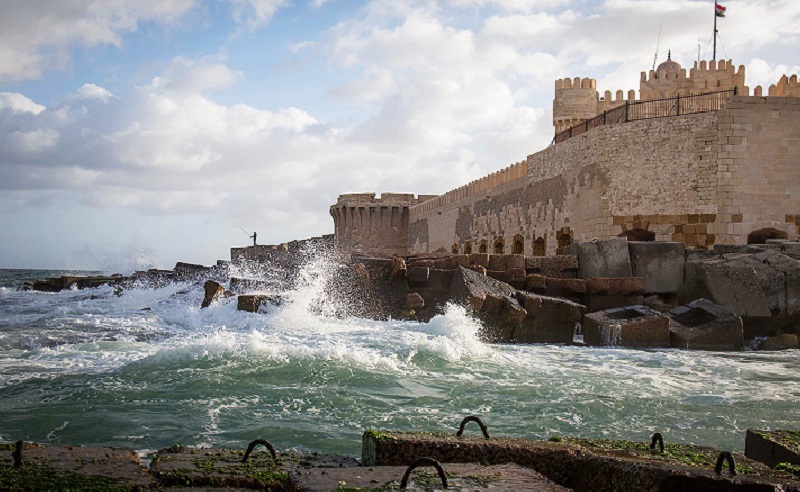American Scientists Predict Egypt Will Be Uninhabitable by 2025 Due to Looming Ecological Disasters
Flooding of the Nile delta and droughts in the rest of the country expected unless action is taken. Egypt will feel the crisis in eight years.

Two impending ecological disasters may hit Egypt soon; complete submergence of the delta under the ocean and lack of fresh water everywhere else. According to a report published by the Geological Society of America (GSA), ongoing reductions in Egypt’s Nile water and the sinking of the delta into the Mediterranean may make Egypt uninhabitable in the not-so-distant future.
Firstly, the GSA report states that reduced Nile water levels may lead to a fresh water and energy crisis by 2025. The Nile already doesn’t provide enough fresh water for Egypt’s population which is set to hit 95 million by 2025. The Nile only provides 97% of Egypt’s water needs which amounts to only 660 cubic metres of water per capita; one of the world’s lowest water shares per person.
It has long been the claim of Egypt’s policymakers and Nile basin countries, like Ethiopia and Sudan, that Egypt consumes more water than normal, but this report disproves those claims.
“It is expected that problems of fresh water and energy poverty in the lower Nile Basin will deteriorate considerably due to the construction of Ethiopia’s Grand Renaissance Dam (GERD),” the report said.
The report also details that by 2100, sea water will rise above the delta, submerging 1/3 of the present Nile Delta surface. In the near future, this could displace over 2 million people and destroy a significant portion of Egypt’s agriculture production capability. Since 85% of Egypt’s current water consumption is used in agriculture, the lack of fresh water will negatively affect production in the short term.
Egypt’s Nile delta is only 1 metre above sea level at the Mediterranean coast and is at risk of submergence due to four compounding factors; sinking of the tectonic plates underneath the Earth’s crust which is pulling the delta down, the Ethiopian Dam, decreased sediment replenishment due to the Aswan Dam, and melting of the polar ice caps.
However, there are ways Egypt can prevent this catastrophe, the report says. If Egypt constructed extensive protection structures along the delta’s perimeter, surrounding the Mediterranean, such as seawalls and other structures; the rate of erosion will decrease considerably or reverse. Egypt also has underground water reserves which could last the country more than a century, says Farouk al-Baz, Egyptian scientist and director of Boston University’s Centre for Space Physics.
Trending This Week
-
Mar 29, 2025




























